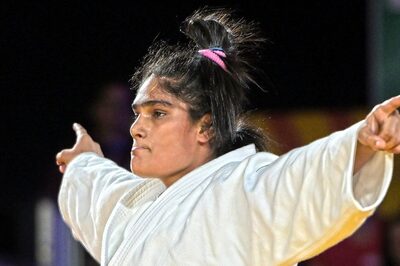
216
views
views
Dr. Amrendra Kumar, MD, Dermatology (AIIMS) & Board-Certified Hair Transplant Surgeon, Global Hair Transplant Board (GHTB) talks about the rise of hair transplants among India's aspirational millennials
In today’s fast-paced world, the decision to undergo a hair transplant among millennials transcends mere aesthetics; it delves into the realms of psychology, societal influences, and personal empowerment. Let’s understand the corelation between psychology, human behaviour, and societal trends that drive this evolving phenomenon especially in India nowadays.
- Psychology and Human Behaviour Science:Hair loss, once considered a predominantly age-related concern, now affects individuals in their twenties and thirties, impacting self-esteem and overall well-being. Research in psychology underscores the profound connection between physical appearance and self-perception, with hair often playing a pivotal role in shaping one’s identity. The decision to undergo a hair transplant represents a proactive step towards reclaiming confidence and control over one’s appearance.
- The Confidence Booster:For millennials, confidence extends far beyond physical appearance; it permeates every aspect of life, including career aspirations and personal relationships. A full head of hair is increasingly viewed as a symbol of youthfulness and vitality, influencing perceptions in both professional and social settings. By investing in a hair transplant, individuals seek to align their external appearance with their internal sense of confidence, ultimately enhancing their overall quality of life.
- Self-Image in the Digital Age:Millennials have grown up in an era dominated by social media, where one’s appearance is constantly on display. The pressure to maintain a flawless image can take a toll on self-esteem, especially for those experiencing hair loss. Hair transplantation offers a tangible solution to enhance one’s appearance and project confidence both online and offline.
- Advancements in Technology:The field of hair transplantation has evolved significantly in recent years, with advancements in techniques such as Follicular Unit Extraction (FUE) and Follicular Unit Transplantation (FUT). These minimally invasive procedures offer natural-looking results with minimal downtime, making them appealing options for busy millennials seeking convenience and effectiveness.
- Career and Personal Growth:In today’s competitive job market, a youthful and vibrant appearance can make a significant difference in career opportunities and personal interactions. Many millennials view hair transplantation as an investment in their professional and personal growth, providing them with the confidence to pursue their goals with renewed vigor.
- Changing Perceptions of Masculinity:Traditionally, male pattern baldness has been associated with aging and a decline in virility. However, as societal norms evolve, so too do perceptions of masculinity. More men are embracing the idea that taking proactive steps to address hair loss is a sign of self-care and empowerment, rather than a loss of masculinity.
- Increased Accessibility:As the demand for hair transplantation grows, so too does its accessibility. Clinics offering these procedures have become more widespread, offering consultations, financing options, and personalized treatment plans tailored to individual needs.The rise of hair transplants among millennials is a multifaceted trend influenced by a myriad of factors, including changing beauty standards, career aspirations, technological advancements, and a desire for self-expression.
As more individuals embrace the option of hair restoration, the cosmetic industry undergoes a significant transformation, reflecting a broader societal movement towards self-acceptance and empowerment. Ultimately, hair transplants serve as a powerful tool for millennials to redefine beauty on their own terms, embarking on a journey towards confidence and personal fulfillment.




















Comments
0 comment